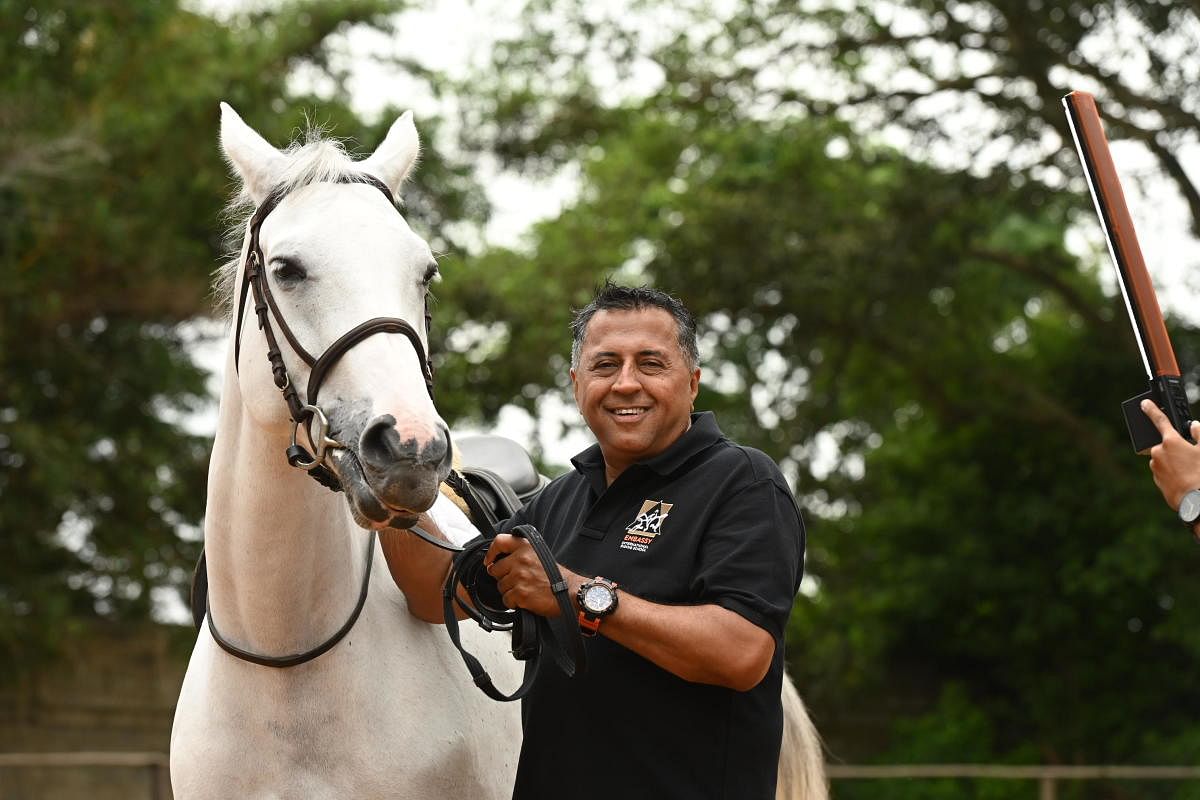

In a sport largely alien to the masses, Bengaluru has been home to some of the country's best talents ever produced in equestrian for more than two decades now. Adding the cherry on the cake was the 2018 Asian Games silver medallist Fouaad Mirza’s qualification to the Tokyo Olympics where he finished among the top-25 riders.
The sound of horses galloping is all too familiar at the Tarahunise village in Bengaluru rural district which houses the Embassy International Riding School that produced Mirza. And now, India's premier horse riding facility is gearing up to celebrate its 25th anniversary on November 7.
It all began with real estate tycoon Jitu Virwani’s love for horses. The lack of Indian representation in the global riding arena, made the Chairman and Managing Director of the Embassy Group invest and make the sport, which remains exclusive to those in the armed forces, more accessible to common public.
“The original idea was to just set up a riding school for the residential locality we were to develop", said Virwani about his objectives for opening EIRS that is spread across 240-acres.
"That, however, changed into dedicating the entire space for equestrian to provide quality training for Indian kids, encourage them to compete in the international circuit.”
This journey though came with its share of challenges. From getting people to take interest in the sport to fly more than 7,000 kms to Germany in 2006 to buy warm-blooded horses (more suitable for equestrian compared to the retired thoroughbreds used until then).
“Out of all these, the constant tussle with the Equestrian Federation of India and the army to simply convince them to be less rigid only for the sport’s popularity to grow has been a long and hard battle we continue to fight,” explains Virwani.
With 94 horses and 20 ponies currently, the EIRS conceptualised and started the Equestrian Premier League (EPL) 11 years ago which is held every last Sunday of a month for six months a year to scout for fresh talent. The number of participants has continued to multiply, an encouraging sign for the growth of the sport, he pointed out.
One of the rare sports with men and women competing alongside each other under one category, Silva Storai, director of EIRS and the only woman jockey in the world to win two derby’s, pegs her hopes on girls for the future. “There are as many girls taking up the sport seriously as the boys. Parents need to be appreciated too for the change in the mindset to support their daughters wholeheartedly now compared to the not so promising scenario even 10 years ago,” Silva noted.
She credits the facility for several firsts and to have popularised equestrian like none other in the country. “We observed people spending exorbitant amounts of money to bring in warm-blooded horses from Europe. That was when we decided to start a breeding operation in 2015 by bringing in mares and stallions from Europe to make it more affordable,” said Silva, who has been at EIRS since its inception.
As for Olympian Mirza from their very own stables, the duo are proud to have unearthed an equestrian hero. “It was a culmination of many emotions to watch him at the biggest sporting extravaganza. Fouaad made all of us proud. He is such a classy performer,” said Silva who has trained the 29-year-old from early stages.
“Not to give reasons but since the judges aren’t used to seeing many Indian riders at the elite level, the marks weren’t awarded fairly. Nonetheless, we will keep fighting to achieve our dream of bringing an Olympic medal in equestrian for India,” said Virwani who is Mirza’s main sponsor.
"In the next five years, we are looking at hosting international shows here to inspire youngsters. There is tremendous potential. But unless we resolve our issues with the federation about bringing a sports code for better transparency, our hands are held tight,” he signs off with a tinge of disappointment.